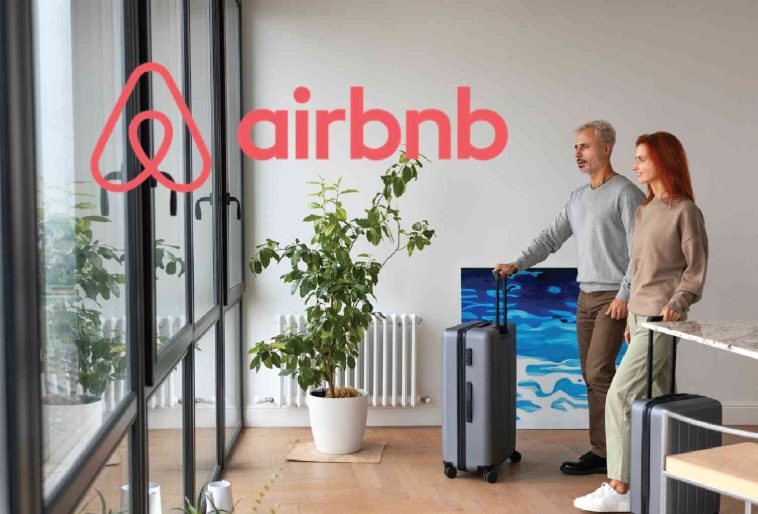So, you’ve decided to turn that extra room or your holiday home into an Airbnb. It’s a fantastic way to make some extra income, right? But before you throw open your doors to guests, have you thought about the insurance side of things? Hosting on Airbnb might seem simple, but there’s more to it than just creating a listing and waiting for bookings to roll in. One thing you can’t afford to overlook is having the proper insurance.
What Could Possibly Go Wrong?
You might think, “Airbnb covers me, doesn’t it?” Well, not entirely. Yes, Airbnb offers some basic protection, but it’s limited and certainly doesn’t cover every potential problem. Hosting without proper insurance from the likes of Policy Powerhouse can open you up to a whole world of risks. Imagine a guest getting injured during their stay, or your property being damaged, or worse—stolen. Without proper cover, you could end up paying for it out of your own pocket.
Think about it: every time someone steps into your home, there’s a level of risk involved. And let’s face it—no one wants to deal with unexpected costs or legal battles.
Common Risks Hosts Face Without Insurance
Here are some of the most common risks you might run into if you skip on the insurance front:
- Property Damage – Guests are going to use your home, and that inevitably means wear and tear. But what happens if they cause significant damage? A broken TV, smashed furniture, or damaged plumbing can add up quickly. Airbnb’s Host Guarantee isn’t a substitute for insurance—it doesn’t cover cash, securities, pets, or damage caused by things like mould or bedbugs.
- Injury to Guests – What if a guest slips on a wet floor or falls down the stairs? As the property owner, you could be held liable for any injuries that occur during their stay. Without the right liability insurance, this could mean paying hefty medical bills or facing legal action.
- Theft – Not every guest will be respectful. Although it’s rare, theft does happen. Airbnb’s protection won’t cover theft of valuables, and in the event of a burglary, your personal home insurance might not pay out if you’re hosting without proper disclosure to your insurer.
- Third-Party Damage – What if your guest accidentally damages the neighbour’s property? Maybe they knock over a fence or break a window next door. You could find yourself responsible for covering those damages too.
- Legal Issues – Hosting without insurance can also land you in trouble if a guest decides to sue you for any reason. Even if you’re not at fault, defending yourself in court can be expensive, time-consuming, and incredibly stressful.
Don’t Rely Solely on Airbnb’s Host Protection
Airbnb does offer a few layers of protection, but there are significant gaps you should be aware of. The two main ones Airbnb mentions are:
Host Guarantee
This promises up to £1 million for property damage. It sounds good on paper, but there are numerous exclusions. For example, it doesn’t cover damages to shared spaces or losses due to natural disasters.
Host Protection Insurance
This covers liability claims up to £1 million as well, but it only applies to certain types of claims, like injury or property damage caused by guests. It doesn’t cover personal injuries to you, the host, or intentional acts by guests.
What this means is that while Airbnb provides some protection, it’s far from comprehensive. If you’re relying solely on these policies, you might find yourself in a bind when a serious issue arises.
What Insurance Do You Need as a Host?
To be fully protected, you need to look beyond Airbnb’s offerings and consider getting specialist short-term let insurance. Here are a few types of cover you should consider:
- Home Insurance with Short-Term Let Cover – Many standard home insurance policies won’t cover damage caused by paying guests, so it’s vital to check your policy. You might need to get a separate policy or amend your current one to cover short-term lets.
- Public Liability Insurance – This covers you if a guest gets injured or their property is damaged while staying at your place. It’s essential, especially if you’re renting out your property regularly.
- Buildings and Contents Insurance – This covers the structure of your home and the contents inside it, which is crucial for damage caused by accidents, fire, or theft. Make sure the policy extends to cover paying guests.
- Loss of Income Insurance – If your property gets damaged and is uninhabitable for a while, this type of insurance can help cover the income you would have made from Airbnb bookings.
By ensuring you have the right type of insurance, you’ll be able to host with confidence, knowing that if something does go wrong, you’re covered.
How to Check If You’re Covered
Not sure if your current insurance is sufficient? It’s always a good idea to check with your insurer. Many homeowners assume that their standard home insurance will cover them, but this isn’t always the case when it comes to paying guests. If you’re hosting on a regular basis, be upfront with your insurance provider and ask if they can tailor your policy to suit your needs.
It’s also worth shopping around for specialist insurance that caters specifically to Airbnb hosts or other short-term rental platforms. These providers understand the unique risks that come with hosting and offer comprehensive coverage that can give you peace of mind.
Safeguarding Your Hosting Journey
Hosting on Airbnb can be a rewarding experience. It allows you to share your space with people from all over the world while earning extra income. But, like any business venture, it comes with risks. Having proper insurance isn’t just about protecting your property; it’s about protecting yourself from potential financial disaster.
By understanding the limitations of Airbnb’s protection and investing in the right insurance, you can continue hosting with confidence and avoid any nasty surprises along the way.
Don’t let the unexpected catch you off guard. Take a moment to review your insurance policy, make the necessary updates, and get back to hosting with peace of mind.





GIPHY App Key not set. Please check settings